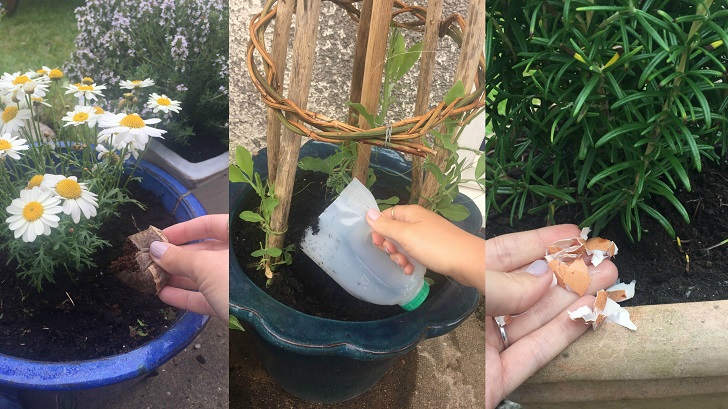
Gardening doesn’t have to be an expensive hobby – there are plenty of money and time saving hacks you can take advantage of.
In fact, everyday items you find in the kitchen, home and even trashcan can actually help you nurture your flowers and shrubs without costing you a penny.
Here are 21 household items that have a surprising number of uses in the garden.
1. Milk Cartons
Give your empty milk cartons a quick rinse and put them to work! They can be used as upside down planters, as a shield for delicate emerging shoots, as a seed starter or to make a bird feeder.
If you need to dust diatomaceous earth around the garden to kill pests, simply poke a few holes in the cap of a dry milk carton and shake to spread the powder.
This method also works well as a DIY watering can.
Finally, turn the empty milk carton into this multi-purpose scoop for digging in soil or the compost heap.
Here are some more great ways to use milk cartons in your garden.
2. Newspapers or Cardboard
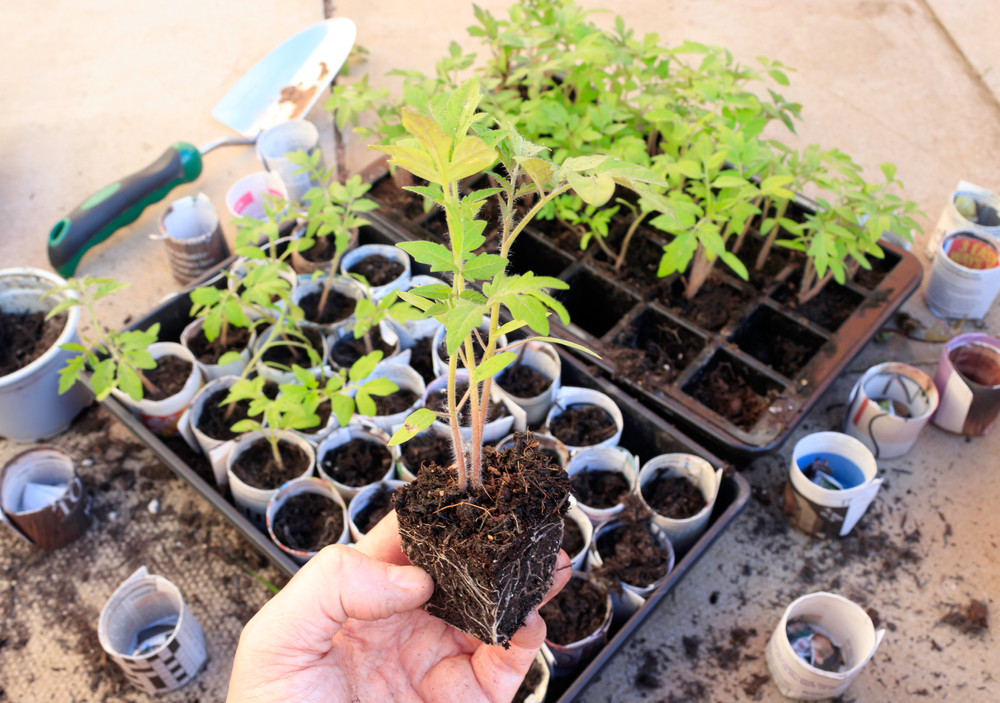
For an organic weed killer or natural mulch, turn to paper. Simply lay newspapers around the base of your plants to smother weeds and encourage earthworm activity.
If you want a new plant bed but don’t have the time to dig up an area of grass, use sheets of cardboard to smother the grass – an effortless process that takes around one month.
Newspaper can also be added to compost to remove unpleasant smells or fashioned into sustainable planting cups for starting seeds.
While many people worry about possible toxins from the newspaper ink, it shouldn’t be a cause for concern – today most publishers use organic pigments such as soy.
3. Forks and Spoons
When you invest in new cutlery, keep the old ones in the potting shed – you’ll never know when they will come in useful.
For example, pests will be deterred from digging around plants if you stick the forks (prong side up!) among the flower beds; while spoons can be turned into vintage looking plant markers.
Both can also be used to dig around the roots of delicate vegetation, especially when the plant isn’t yet fully established.
4. Vinegar
Vinegar is an all-rounder in the home and garden.
Outdoors, use it to remove rust from gardening tools, add shine to dull plastic patio furniture, kill weeds on the sidewalk, and even clean bird and butterfly feeders without the use of harsh chemicals.
Vinegar is also great for removing berry stains from your hands after harvesting and even helps cut flowers last longer when you add a spoonful to their water.
5. Egg Cartons
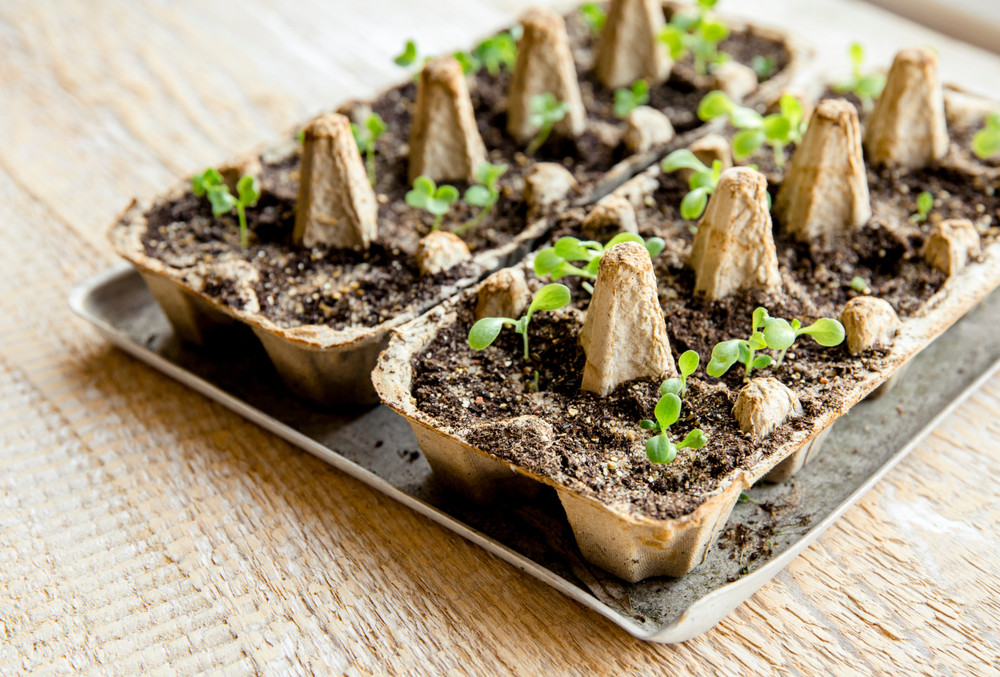
Egg cartons make fantastic free, biodegradable seed starting containers. No egg cartons? No worries, here are 10 more creative seed starting ideas.
6. Wine Bottles
Upcycle old wine bottles in the backyard by transforming them into a flower bed border or a bird feeder – or one of these 20 fantastic outdoor décor ideas.
Busy gardeners who struggle to water their plants, especially during the summer months, can fashion automatic waterers out of empty bottles.
Not only can the bottles be used anywhere from containers to large beds, but the green or brown glass blends perfectly into the landscape.
7. Baking Soda
Baking soda has so many fantastic and creative uses in the home and garden.
To fight fungus on your favorite flowers and shrubs, try this quick fix – add three tablespoons of baking soda to a gallon of warm water and spray on the afflicted plants once a week.
8. Plastic Bags
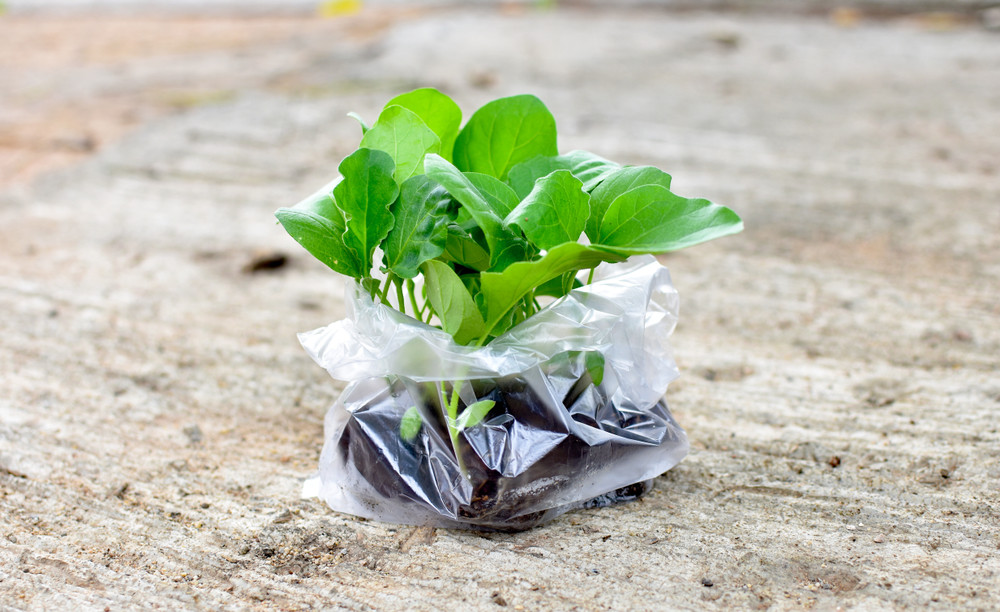
Did you know that a plastic shopping bag can take anywhere from 20 to 1,000 years to decompose? While this makes them an environmental nightmare, it means they are pretty durable gardening tools!
Re-use your plastic bags to keep insects away from fruit on trees, protect shoes from mud, shelter plants from frost (adding a layer of cotton or other insulating fabric first), or to make disposable aprons to keep clothes clean.
9. Stockings
Nylon stockings are perfect for tying tomato vines, tall plants or young trees to a stake. The soft and durable fabric won’t injure the stem, and it will expand as the plant thrives.
Store onions or bulbs in old stockings too; the breathable but durable fabric is perfect for helping them stay fresh for longer.
10. Pennies
Have a bunch of old pennies or foreign copper coins lying around?
Copper is a well-known fungicide so burying a few strategically around the garden can keep the soil healthy and the plants free of fungal infections.
11. Essential Oils
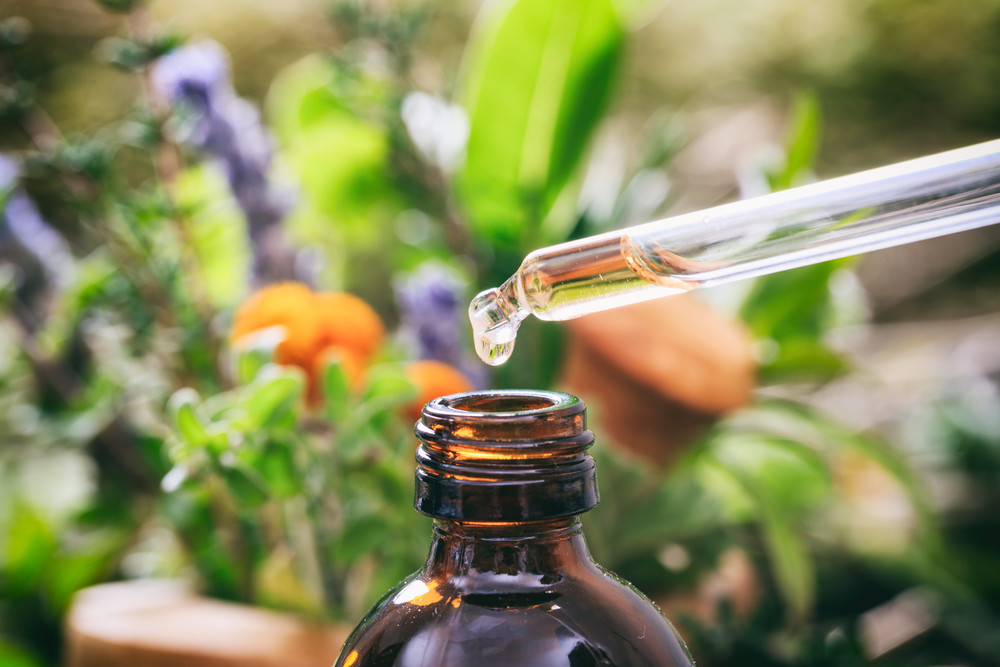
Most people have at least a bottle or two of essential oils lying around the house.
These incredible distillations aren’t just useful for improving the health of humans and animals, they can even improve the condition of plants and the entire garden.
Use essential oils to attract pollinators, discourage vermin, kill fungus and pests and deter pets from digging among the plant beds.
Here are nine clever ways to use essential oils for a beautiful garden.
12. Glass Jars
Forget relegating your empty glass jars to the recycling heap – they have so many valuable uses.
In the garden, they can be used to make bird and butterfly feeders, planters, candles, herb gardens, wind chimes and more.
They also look stunning as outdoor dining centerpieces.
Here are 23 ways Mason Jars can be used in the garden – although in most cases any type of glass jar will work!
13. Coffee Grounds
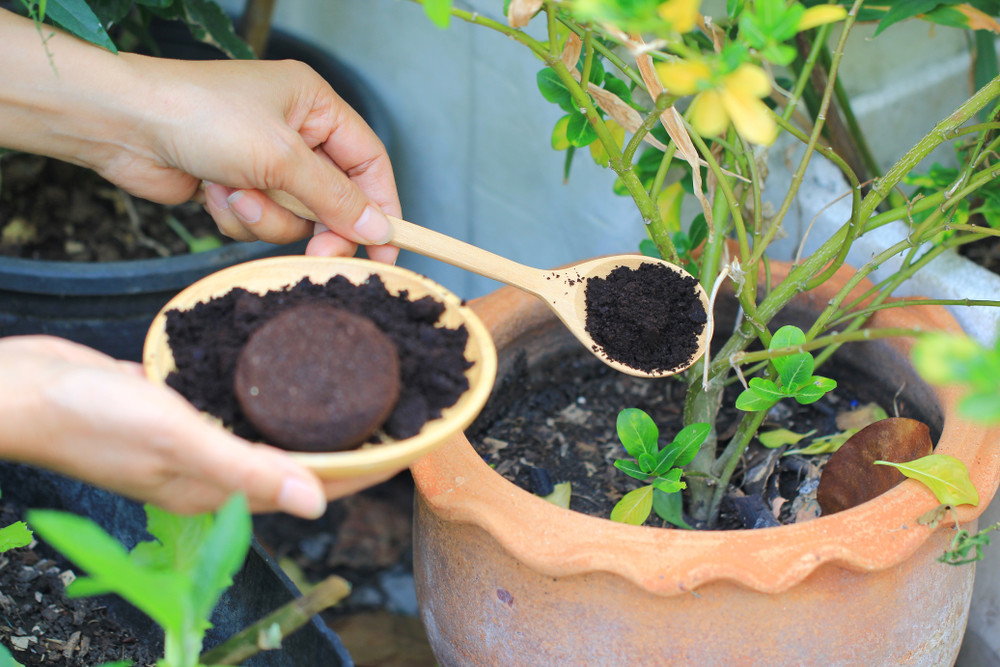
Creative uses for coffee grounds outdoors include as an earthworm food, to kill microbes in the soil, to nourish acid-loving plants, as a general fertilizer or even to change the color of your hydrangeas!
Discover even more uses for coffee grounds in the garden here.
14. Aluminum Foil
Although aluminum foil is almost 100% recyclable, many programs won’t accept it as it is often covered in food waste. If that’s the case in your area, put the used foil to work in the garden.
Protect your fruit trees from birds by twisting strips of the foil around branches. It reflects light and makes a noise in the wind, both of which keep birds at bay.
Similarly, small pieces of aluminum foil mixed into mulch will deter some light-sensitive pests from your vegetable patch.
Although beautiful creatures, deer can be harmful to young plants and shrubs.
Simply wrap the base of such greenery with aluminum foil up to waist height, which will stop the deer (along with mice and rabbits) from feeding on your plants.
15. Spices
Certain spices – like chili powder, cayenne pepper, or Mexican and Cajun blends – can be fantastically effective pesticides.
Just sprinkle the powder around the garden or mix it with water in a spray bottle and apply to affected plants.
This homemade recipe for hot pepper spray is every bit as effective as the store bought version, but at a fraction of the price.
16. Shoes
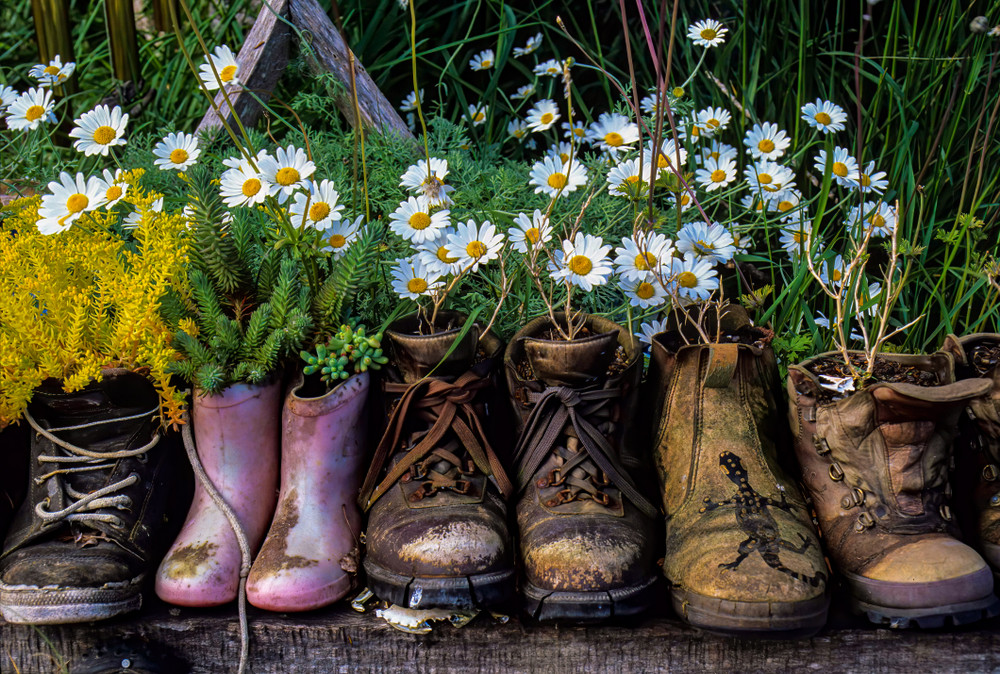
Worn out shoes can make for brilliant bird feeders – like this one. Any sort of shoe also works as a quirky and stylish planter, whether old leather boots or spiky new stilettos.
Here are another 40 Inventive DIY Garden Planter ideas, many of which simply require everyday household items.
17. Epsom Salt
Every home should keep Epsom salt on hand. This magnesium-rich muscle relaxer isn’t just used for health and beauty, it also brings its fair share of benefits to the home and garden.
Outdoors, use Epsom salts to inhibit the growth of weeds in cracks and driveways, to extend the life of cut flowers, and to scrub flowerpots.
It’s also said to improve seed germination, counter transplant shock, deter garden pests and nourish tomatoes, peppers and roses.
Discover all the ways to use Epsom salts in the garden here.
18. Tea
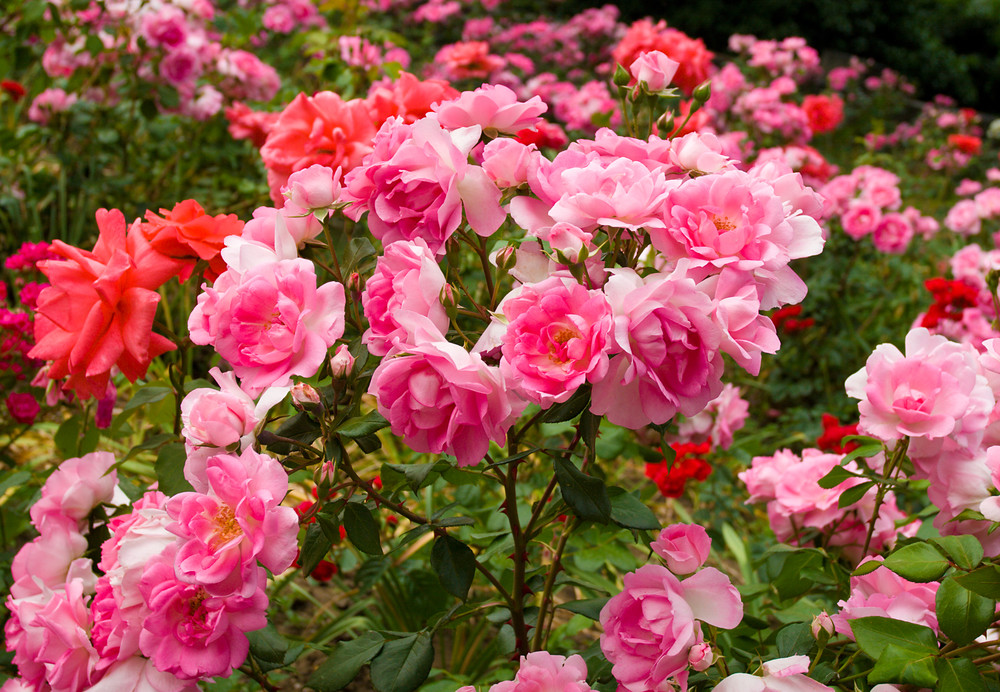
A strong brew can be used to water acid-loving plants, to speed the breakdown of compost and to nourish rosebushes.
Open used teabags and sprinkle the damp leaves around the base of plants to fertilize the soil, and to keep mice and other pests at bay.
19. Plastic Containers
Plastic containers like old yogurt pots, ice-cream tubs and more can be used to store small tools, plant markers and seed packets.
You can also use them to start seedlings, make traps for slugs and, when placed under each leg of a dining table, to deter ants from crawling onto your picnic!
It’s best not to grow food in plastic containers but, if you do, make sure they are constructed of food-grade plastics.
20. Egg Shells
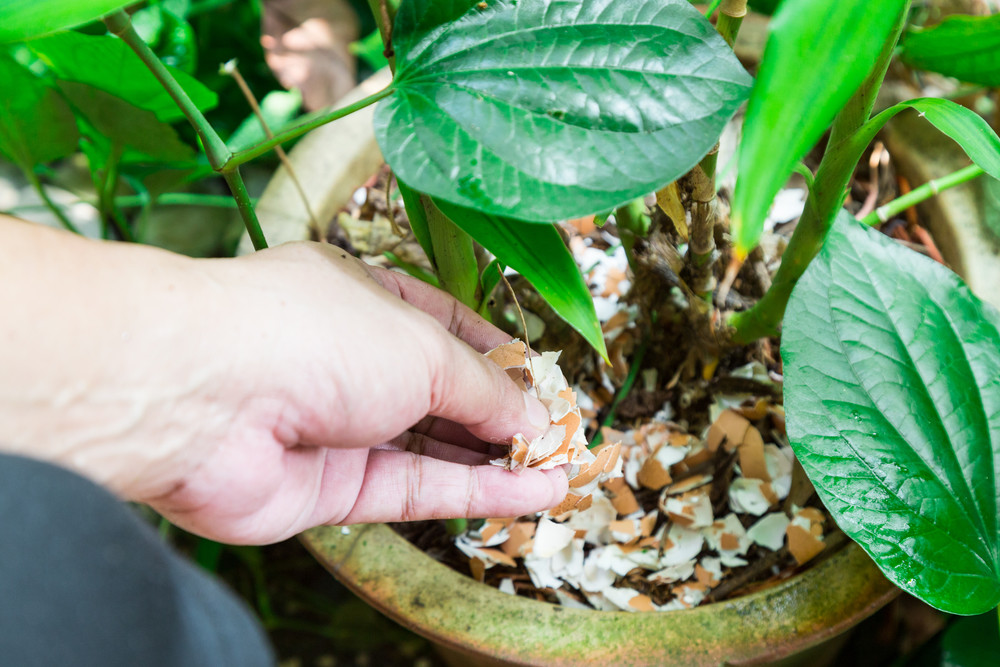
Nutrient rich eggshells can be used in the garden to deter pests, to fertilize plants, to start seedlings, and for so much more.
21. Plastic Bottles
Environmentally unfriendly plastic soda and water bottles can be given a new lease of life outdoors. Use them to secure netting over flowerbeds, to trap mosquitoes, as bird feeders or even individual greenhouses.
Those who have a lot of plastic bottles saved up should consider building this incredible vertical wall planter!
